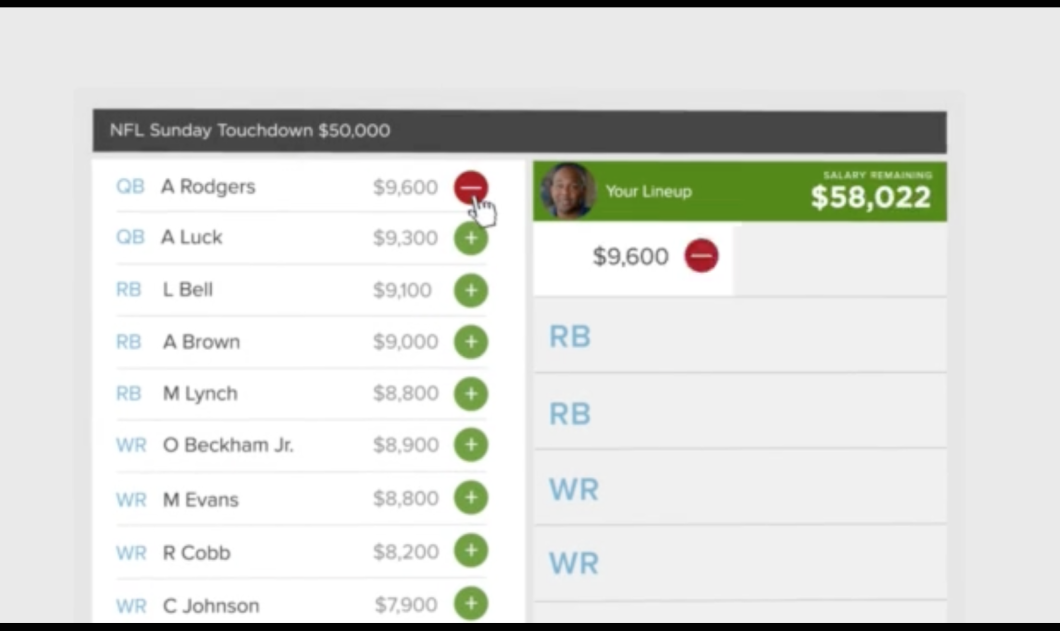Payment Processor Reportedly Cutting Ties With DraftKings, FanDuel Amid Gambling Disputes
 UPDATE: In a statement to Consumerist, an attorney representing DraftKings denies the NY Times report.
UPDATE: In a statement to Consumerist, an attorney representing DraftKings denies the NY Times report.
“We are not aware of what Vantiv may or may not have told other industry participants about its plans,” says David Boies, Counsel to DraftKings. “However, to be clear, first, Vantiv has not told DraftKings that it plans to cease fulfilling its contractual obligations as of ‘Feb 29, 2016’ (or any other date). Second, Vantiv is under court order to continue to fulfill its contractual obligation to DraftKings.”
===Original Post===
With the state officials in Nevada, New York, Illinois, and now Texas all saying they believe that daily fantasy sports [DFS] sites DraftKings and FanDuel are unlicensed gambling operations, a company that had processed payments for both of these sites has reported severed ties with the industry.
The New York Times reports that payment processor Vantiv has notified its DFS clients — which include both of the aforementioned sites — that, starting Feb. 29 it will “suspend all processing for payment transactions” with these companies.
A letter obtained by the Times cites the recent conclusions of various attorneys general that DraftKings and FanDuel violate their states’ anti-gambling laws.
“Although in recent weeks DFS operators have raised numerous arguments to the contrary, to date those arguments have been unsuccessful and/or rejected,” reads the letter.
Like a lot of online businesses, DraftKings and FanDuel use third-party payment processors to handle transactions with its users. It’s likely that both sites used other processors in addition to Vantiv, but given the sheer volume of deposits and payments involved in running a DFS operation, it could be crippling for the sites to have to shift Vantiv’s workload onto another provider.
The Unlawful Internet Gambling Enforcement Act [UIGEA] of 2006 wasn’t a direct attack on gambling operations. Instead, it stifled the industry by forbidding financial businesses — including payment processors — from doing business with online gambling sites.
Thus, while DraftKings and FanDuel may have the luxury and legal team to mount a defense of their operations — which they contend are not gambling, but are instead games of skill for which people win cash prizes — Vantiv appears to be taking the cautious route and stepping aside, at least until the matter is settled.
And the Vantiv letter does include a statement of support for the DFS industry, saying the processor “will continue to work with stakeholders for a long-term solution to the ongoing DFS controversy. When there is better clarity and long-term certainty around the regulatory and judicial landscape related to DFS, Vantiv may decide to resume processing these types of payment transactions.”
The UIGEA does include a carve-out specifically for fantasy sports gaming, but it also leaves it open for individual states to decide whether or not such games are legal within their borders. Before the recent controversy, DFS were not allowed to operate in a handful of states — Arizona, Washington, Iowa, Louisiana, and Montana — because of local laws.
Amid a rash of stories about insider information-sharing allegations at DraftKings and FanDuel in the fall of 2015, Nevada was the first of the new batch of states to declare DFS sites illegal, when state gaming regulators determined that the sites were effectively operating as unlicensed sports books.
The attorney general for New York soon followed ordered to block both sites from operating in the state. That matter is now tied up in the legal system while DraftKings and FanDuel continue to accept payments in the state. However, following the attorney general’s initial decision, Vantiv did say it would be unable to process payments for New York state DFS players.
More recently, the attorneys general for both Illinois and Texas have published opinions stating that they believe DFS violates their respective state laws, but neither has taken any action to shut down operations.
Want more consumer news? Visit our parent organization, Consumer Reports, for the latest on scams, recalls, and other consumer issues.

